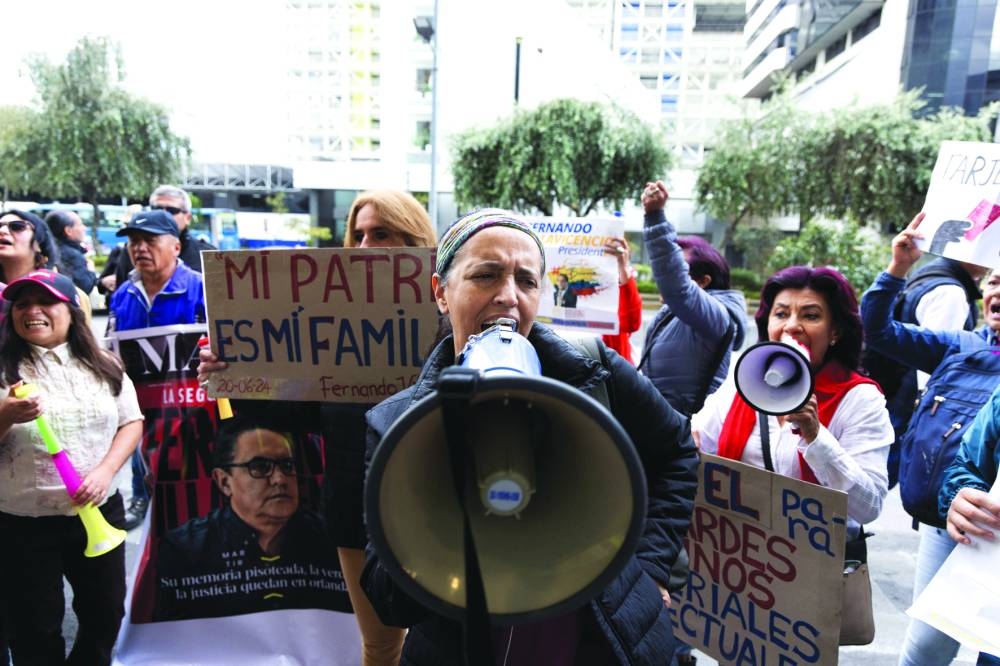An Ecuadorian court sentenced a gang member to nearly 35 years in prison on Friday for plotting and ordering from his cell the murder of a journalist turned anti-corruption presidential candidate.
Five people were handed hefty prison sentences for their role in the assassination of Fernando Villavicencio, who was shot dead last year just before the country’s election.
Gang member Carlos Angulo, 31, was given 34 years and eight months in prison for having planned and ordered the murder, according to the sentence read out in court.
Another defendant, Laura Castillo, received the same for providing weapons, money, vehicles and motorcycles to the Colombian hitmen who fatally shot Villavicencio on August 9 last year as he was leaving a rally in Quito.
Villavicencio, a former investigative journalist who vowed to combat political corruption and drug trafficking, was killed days before the first round of voting in the presidential election.
Six Colombian men were arrested hours after the shooting, but all of them were killed while in prison two months later.
Seven additional suspects were later arrested, one of whom died and another who was acquitted.
The remaining five went on trial.
In addition to Angulo and Castillo, accomplices Erick Ramirez, Victor Flores and Alexandra Chimbo were handed 12-year prison terms.
According to prosecutors, Flores handled security for the motorcycle on which the hitman who shot Villavicencio was travelling, while Chimbo was in charge of alerting the gunmen about the candidate’s departure. Ramirez did logistics work.
Some of the suspects were accused of ties to “Los Lobos”, one of the main gangs in Ecuador fighting for control of the drug trade that has led to a spike in violence in recent years within the small South American country.
A witness who testified during the trial claimed there was a $200,000 bounty on Villavicencio’s head due to his campaign against gangs and corruption.
The witness also accused the suspects of working for individuals tied to the administration of former Ecuador president Rafael Correa, who is in exile after he was convicted on corruption charges in 2020.
The former president, who lives in Belgium, denies any link to the assassination.
“We need to know the whole truth and make sure this is not repeated again,” Amanda Villavicencio, daughter of the assassinated candidate, wrote on the social media platform X.
Outside the court, relatives and supporters chanting slogans held up posters written “jail for cowardly murderers” and pictures of Villavicencio.
Villavicencio’s work as an investigative journalist exposed high-ranking officials, including Correa’s allies.
Since 2023 nearly a dozen politicians have been assassinated in Ecuador.
Once-peaceful Ecuador is enduring an unprecedented wave of violence linked to narcotics trafficking.
With ports on the Pacific, the country serves as a transit point for cocaine produced in Colombia and Peru and sent to the United States and Europe.
The homicide rate in Ecuador, a country of about 17mn people, soared from six per 100,000 inhabitants in 2018 to 47 per 100,000 last year.

Alexandra Villavicencio, Fernando Villavicencio’s sister, uses a
megaphone during a demonstration outside a court in Quito that handed down prison sentences for five people found guilty of
murdering her brother. – Reuters
